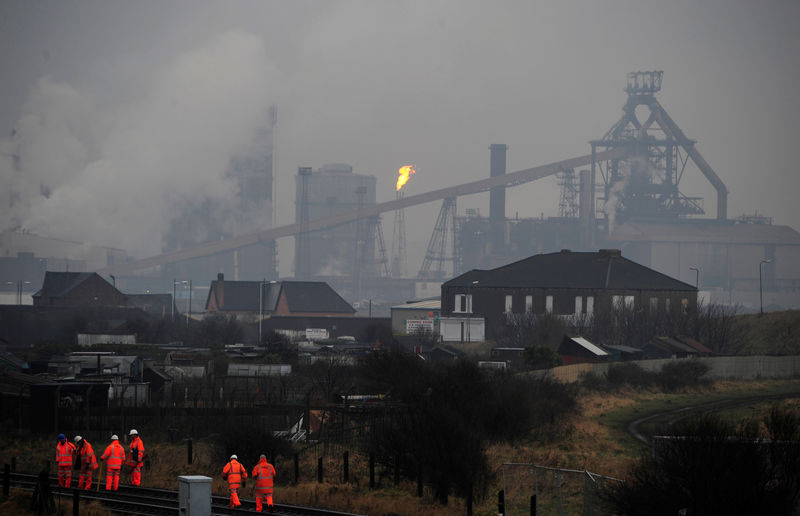By Andy Bruce
LONDON, (Reuters) - The Brexit stockpiling boom of early 2019 gave way in May to the steepest downturn in British manufacturing in almost three years as new orders dried up, boding poorly for economic growth in the second quarter, a survey showed on Monday.
The IHS Markit/CIPS UK Manufacturing Purchasing Managers' Index (PMI) fell to 49.4 from 53.1 in April, its lowest level since July 2016 and worse than all forecasts in a Reuters poll of economists that had pointed to a fall to 52.0.
Export orders dropped at the fastest pace since October 2014, the survey showed, reflecting global trade tensions and European businesses diverting supply chains away from Britain because of Brexit uncertainty, the PMI showed.
A separate survey from the 'Make UK' manufacturing organization published on earlier Monday also suggested EU customers are turning their backs on Britain.
Britain's economy picked up in early 2019, helped by the biggest rise in factory output in 20 years as companies raced to stockpile goods to avoid disruption to supply chains in the run-up to the original March 29 Brexit deadline.
But with Britain's departure from the European Union postponed until Oct. 31, the boost from stockpiling has evaporated -- putting manufacturing on course for a renewed downturn, data company IHS Markit said.
"New order inflows declined from both domestic and overseas markets, as already high stock levels at manufacturers and their clients led to difficulties in sustaining output levels and getting agreement on new contracts," IHS Markit economist Rob Dobson said.
British factories cut jobs for a second month running in May and ran down backlogs of work at the fastest rate in six years, a poor omen for manufacturing output, the survey showed.
"The current manufacturing downturn may have further to run and will have negative ramifications for growth in the broader economy in the months ahead," Dobson said.
Still, manufacturers struck a more optimistic tone for the longer term as expectations for future output struck an eight-month high, based on hope that worries around Brexit and global trade will eventually subside.
